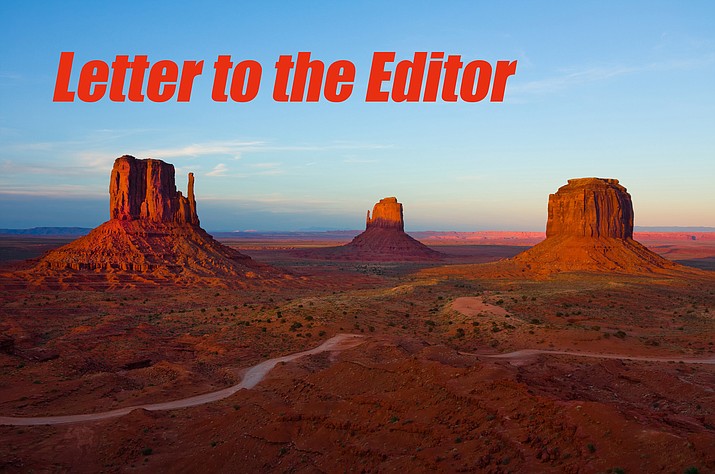To the editor of the Navajo – Hopi Observer,
Each time I meet a Hopi at the village store I ask: “Do you know anything about the trial going on in the Arizona court over water rights claim to Little Colorado River? Each time the answer is “No, what is it about?” I tell them; “It is about you, your children, grandchildren and future generations. It’s about your heritage, your history, your memories. It is about your right to carry on your religious beliefs and traditions.”
In 1985, over 300 parties in Coconino, Navajo and Apache counties filed a claim to waters in the Little Colorado River Basin, including lawyers hired by the Hopi Tribal Council, in Apache County Court.
Unfortunately, no claim was made to protect Sípàapu. Sípàapu, as many Hopi sinom know, is the umbilical cord that connects us to our Earth Mother. It is the birthplace of the present Hopi civilization we call the Fourth world. The breath of Sípàapu is weakening and we do not know what is causing it. The federal government owes us a scientific explanation. It could be caused by manmade reservoirs, erosion, drought or a combination.
Sípàapu is just as important to Hopi as Mecca is to Israel and Muslims, and the Vatican to the Catholic church.
The Apache County Court judge has ruled that Hopi people have no right to the Little Colorado River, only to waters on the Hopi Reservation and Moencopi Island. The Hopi Tribal Council lawyers appealed the adverse opinion to Arizona Superior Court. The Superior Court judge will issue a decision next year.
Among the parties opposing the Hopi claim are Salt River Project, the city of Flagstaff and a coalition of over 300 land owners.
If the lower court decision is upheld, it will be disastrous. Water that feeds Sípàapu will continue to diminish. Sípàapu, the heart of our Mother, could die. Our umbilical cord to Mother Earth will be severed and we will drift away.
To prevent this from happening, Black Mesa Trust has prepared a Proclamation asking the U.S. government to set aside Sípàapu as a national historic and traditional protected place. Failure to protect Sípàapu will be a violation of our right to carry on our religion, which is supposed to be protected under the First Amendment to the U.S. Constitution and the state of Arizona will be accused of violating our rights along with the city of Flagstaff and Salt River Project.
Winters Doctrine, which lawyers are using to argue for Hopi water rights, was intended to create a permanent homeland for Native American people. A permanent sustainable Hopi homeland is not possible without Sípàapu. A dime is not a dime if one side of the coin is blank. One side represents the mind, the material world in which we live, the other side represents the heart, the spiritual world.
The Proclamation to save Sípàapu is available for reading on our website: www.blackmesatrust.org. you can request a copy via email: Kuuyi@aol.com.
Another unfortunate oversight is the failure by the Hopi Tribal Council lawyers to use an international treaty between the United States and Republic of Mexico. The peace treaty preserves a land grant given to Hopi ancestors by the King of Spain. The land grant, called Moqui Territory, encompasses a huge area. Eight shrines mark the boundary. Dalton Taylor, an elder from the village of Shungopavy, took me on a two-day pilgrimage to the sites.
Hopi rights under the Treaty of Guadalupe Hidalgo has never been tested in any court of law. For this reason, the Apache County Court decision is premature. Neither have Hopi ancestors ever signed a peace treaty with the U.S. giving up their rights. The U.S. government broke the treaty unilaterally by setting up Hopi 1882 Executive Order Reservation.
Black Mesa Trust, in behalf of the Hopi traditional religious practitioners calls upon all 12 independent villages to endorse the Proclamation. We hope the Hopi Tribal government law makers will honor the purpose of the Hopi Constitution, which is to “Protect the good things of Hopi way of life” by supporting the Proclamation.
Respectfully,
Vernon Masayesva, Kykotsmovi, Arizona
read the full article here

